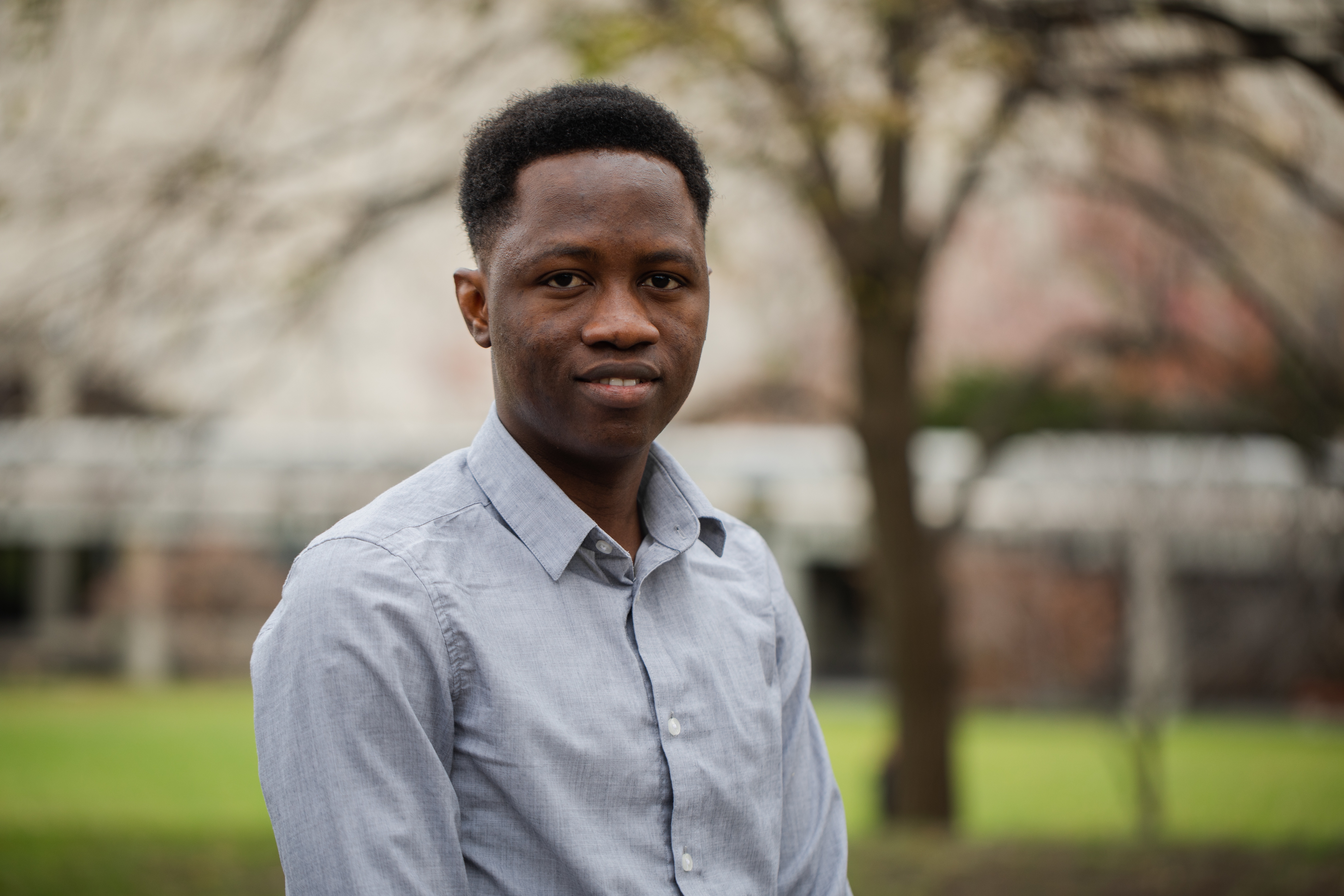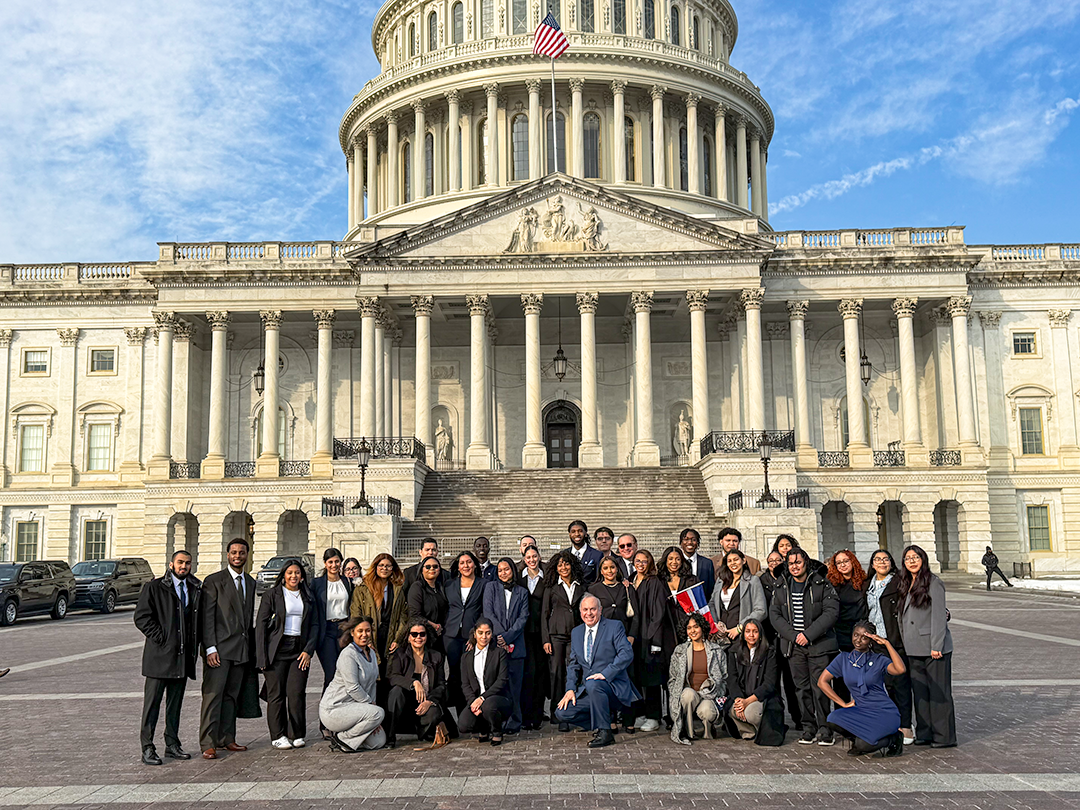- Lehman College >
- News >
- 2019 >
- Digging Up the Past Becomes a Bright Future for Lehman Alumnus
News
Search All News
Sunday, February 15, 2026
CONTACT
Office Hours
Monday - Friday 9am - 5pmClosed Sat. and Sun.
RELATED STORIES
February 12, 2026
February 5, 2026
Digging Up the Past Becomes a Bright Future for Lehman Alumnus

Digging Up the Past Becomes a Bright Future for Lehman Alumnus
December 11, 2019
Last summer, Lehman alumnus Abdul-Alim Farook ('18) was selected as an Archaeological Institute of America (AIA) New York State Scholar. Acceptance to this one-year, pre-professional program is highly competitive: Farook was one of only six students chosen from across New York City for the inaugural 2019–2020 cohort. He is currently enrolled in the Master of Arts in Liberal Studies program at the CUNY Graduate Center, studying archaeology. Farook grew up in Ghana and immigrated to the U.S. in 2011. When he enrolled at Lehman, little did he know he would one day be exploring an ancient civilization in Central America. Here he tells us how his experience at Lehman led him to into archaeology, and what he loves most about the field.
What do you love about archaeology? One of the most lovely things about archaeology is the discoveries—we keep finding different things. The more you find, the more questions it raises, so you don’t see the end of it. And also, the different types of archaeology. Every continent you go to, there is some version of archaeology that is similar but also totally different from other places. So, the questions are vast. It’s great also because there is a bit of anthropology in it, and I like to learn about different people and their cultures, so that’s what really interested me about archaeology.
When you were at Lehman, what experience here had a big impact on you? My first semester was difficult. It was a new place. But the amazing thing about Lehman is the community. [And] there are a lot of activities for students to participate in, so after the first semester, I found it easy because of the resources Lehman had. You tend to meet a lot of good people. The professors are there to help you, that’s one of the things I really took seriously. They are always there for you.
What motivated you to apply for the NYS scholars program? Last year, I went to an archaeology conference in Washington, DC. I met a lot of archaeologists, and just like the community at Lehman, I thought, well if I get myself into this type of community, since my goal is to be an archaeologist, it will be very good for me to connect with people who are already experienced and can give me advice.
Also [the AIA] has conferences and talks and they have very good funding for people who get into the program. The AIA encourages you to submit your research so they can help you present it at conferences. For me the biggest thing about the AIA is that they connect you with different archaeologists from different parts of the world. You can use that to build toward your own goals.
What are you working on now? Right now, my main focus is the Mayan culture. Last year I visited Honduras and Guatemala, I did my field work over there, I worked in the lab and I also did some cave exploration, which was really fun.
What is it about Mayan Culture that you find so interesting? Well, apart from being one of the greatest civilizations that we’ve seen, when I visited last year and saw the amazing kingdoms and buildings they built, which we still have trouble understanding, I thought, “Well this is something I want to do, because they have a lot of things to share.” Even though it’s been excavated for years—for decades-— whenever you go, there is a new thing that has been found.
What are plans once you’ve finished the scholars program and your master’s degree? Continuing archaeology by finding opportunities, [and] hopefully the opportunities I find will come because of the way the scholars program has connected me. When it’s over, I hope to be almost finished with my master’s program, or halfway through, and I’m thinking of applying for a Ph.D. program in the coming years.
I’m taking a step at a time, and I’ll also continue to go to places to study archaeology, to excavate. This summer I’m going back to Ghana, and one of the things I will do is expose myself to the archaeology we have there, particularly museum archaeology. After the scholar’s program I will still attend lectures, because you never know who you’re going to meet—you can meet great people who will help you.









